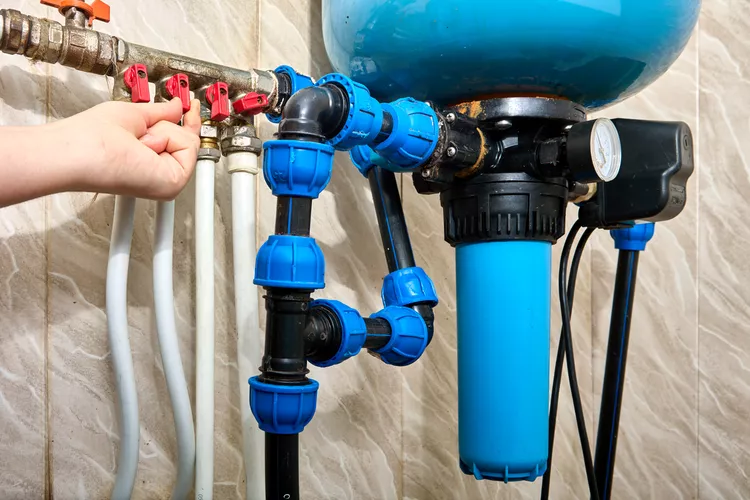Introduction: Curious about whole-house water filters? Learn what they are, how they work, and whether you might need one to enhance the quality of water throughout your home.
Why Consider Whole-House Water Filters? Water from taps and wells can carry contaminants, affecting both cleanliness and taste. Whole-house water filters offer a comprehensive solution by purifying water at its entry point, ensuring every tap in your home delivers freshly filtered water.
What Are Whole-House Water Filters? These filters are systems placed near the main water line entry into your home. They target specific contaminants, addressing issues like water hardness, sediments, chlorine smell, and more. Positioned at the source, they work at the point where your plumbing system begins.
Water Sources and Contaminants:
- Municipal Water: Treated at facilities but may still pick up pollutants from aging pipes.
- Well Water: Pumped from underground aquifers, may contain iron, sediment, or other contaminants.
How Whole-House Water Filtration Works: Unlike smaller filters, whole-house filters are installed at the plumbing entry point. Professional installation is recommended due to complexity. Current models include pre-filters and carbon filter units. Maintenance involves replacing the filter every 6 to 12 months.
Types of Whole-House Water Filters:
- Water Softeners: Remove minerals causing hard water, preventing damage to appliances. Lifespan: 15 years.
- Sediment Filters: Mechanically trap contaminants, enhancing overall filtration system effectiveness.
- Ultraviolet Purification Systems: Target microorganisms like bacteria and viruses using UV light.
- Carbon Filters: Eliminate chlorine taste and smell by absorbing organic matter and chemicals.
- Acid Neutralizers: Ideal for acidic water, utilizing calcite to raise pH and prevent damage.
Choosing the Right Filter:
- Consider water source, contaminants, filtration capacity, and flow rate.
- Ensure the system is independently tested and certified.
- Professional installation may provide warranties and guarantees.
- Factor in the overall cost, including installation, replacement filters, and parts.
Do You Need a Whole-House Water Filter?
Consider a whole-house filter if:
- Water tests reveal contaminants not addressed by smaller filters.
- You notice repeated plumbing issues, appliance breakdowns, or health concerns.
Conclusion: Whole-house water filters offer a holistic solution to water quality issues. Understanding your water source, potential contaminants, and the types of filters available will help you make an informed decision about whether a whole-house water filter is the right choice for your home.


